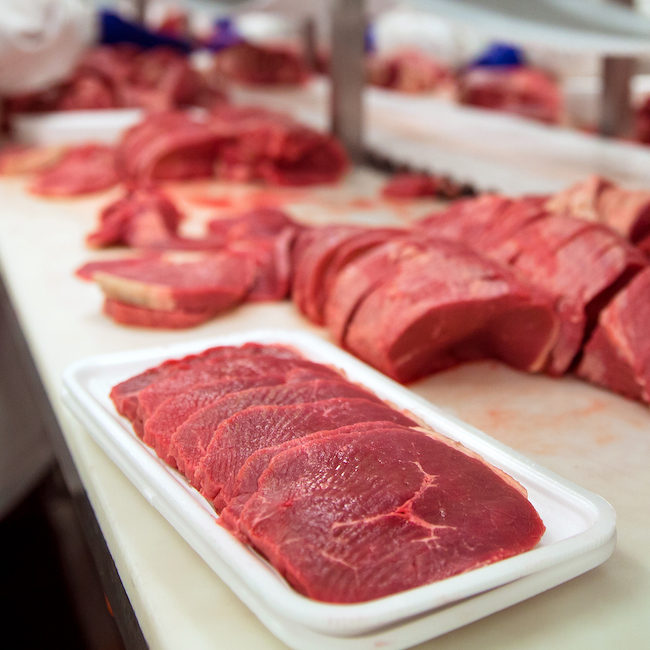This is an archived article and the information in the story may be outdated. Please check the time stamp on the story to see when it was updated last.
Did you know that heart disease is a leading cause of death for most adults in the United States? Lack of activity combined with the traditional American diet puts people at higher risk of things like obesity and diabetes, which are some of the biggest risk factors of heart-related illness and death. Making sure you’re eating a healthy diet is important for reducing your chances of developing heart disease or having a fatal heart attack later on in life. One big contributor to poor health is the presence of ultra-processed foods on the market, especially meat.


Although meat itself is a great form of protein, which is a necessary component of any healthy diet, it can sometimes be high in saturated fat, which increases total cholesterol, LDL, and lipoprotein (Lp)a. These are both things that, when elevated, could put you at higher risk of heart related health issues. Because your liver makes all of the cholesterol your body needs, the cholesterol in your diet is unnecessary and, when unchecked, could bring your body’s amount to unhealthy levels. Red meat, especially processed meat, is often full of saturated fats. “Processed deli meat is on the top of the list for food that can increase the risk of cardiovascular events including heart attacks and stroke.” Says Dr. Raed Bargout, a cardiologist at Dignity Health-Glendale Memorial Hospital in Glendale, California. If you used sliced deli meat in snacks or sandwiches, it may be better to cut back on it, especially if you’re at risk of poor heart health already.
Another processed snack that may be worth cutting back on is jerky, especially if it’s made with pork. According to Caitlin Policastro, a nurse practitioner at the New York Center for Innovative Medicine, eating too much pork could raise a number of health issues. “Besides the fact that [it’s] is loaded with saturated fat—leading to cardiovascular problems, high cholesterol, weight gain and more—most pigs are given high doses of antibiotics to keep them alive prior to being slaughtered,” she says, “In addition to being loaded with antibiotics, pigs have a difficult time eliminating toxins because their digestive systems are extremely basic, which compounds the problem.”

Additionally, Health.com reports that “A 1-ounce portion can pack nearly 20% of the daily advised sodium limit for adults.” Too much sodium in the diet can contribute to everything from water retention to weight gain to an enlarged heart. So long story short, although it’s popular for its convenience and cost-effectiveness, jerky isn’t the best for your long term health. If you’re going to eat it, focus on keeping it in moderation.
Eating a balanced diet is the best way to invest in your longterm health. Eating a wide variety of nutritious foods, and keeping the not so healthy ones in moderation, is key to living a healthy life and feeling your best. With heart disease being a leading cause of death in the United States, it’s crucial to be mindful of what foods could make your chances of poor heart health higher. Avoiding processed meats, especially deli meat and jerky, is best when possible. Instead, opt for cooking your meat yourself, and buying organic when you can.


























